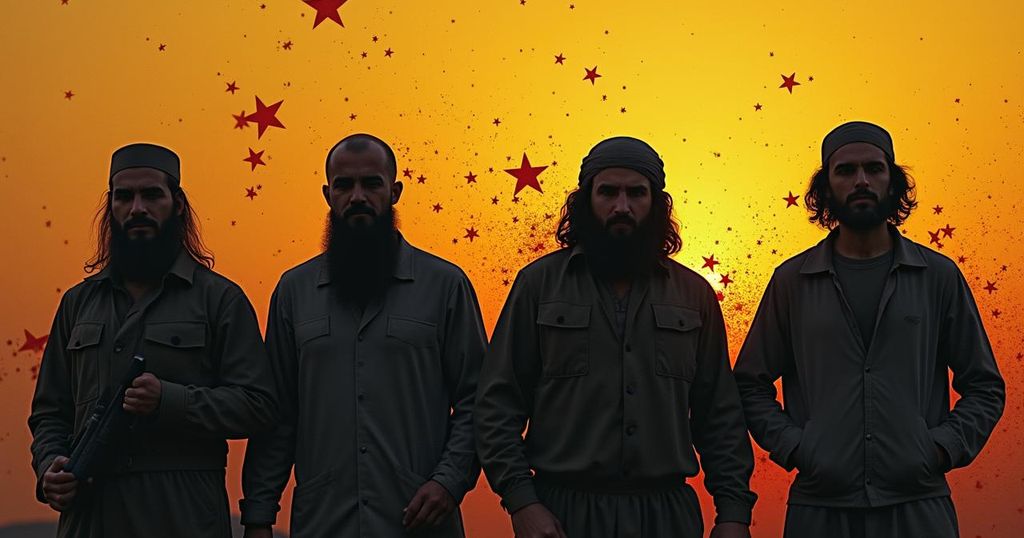Recent Israeli airstrikes in Lebanon have claimed the life of Hezbollah leader Hassan Nasrallah, prompting a significant escalation in violence. The strikes have resulted in over 1,000 casualties across Lebanon, with Iranian leaders vowing retaliation. The UK has advised its citizens to evacuate Lebanon, reflecting rising tensions in the Middle East amid ongoing military operations by Israel against Hezbollah and Hamas. The humanitarian impact of the conflict is severe, with hundreds of thousands displaced and seeking shelter.
The ongoing conflict between Israel and Hezbollah has sharply escalated following the reported assassination of Hezbollah leader Hassan Nasrallah. Israeli strikes in Lebanon resulted in the deaths of multiple individuals, including key Hezbollah figures like Nabil Kaouk and Ali Karaki. According to sources, Nasrallah’s body has been recovered from the scene of an airstrike in Beirut, reportedly without direct wounds, suggesting blunt trauma from the blast was the cause of death. Over the past two weeks, more than 1,000 individuals in Lebanon have perished as a result of the Israeli bombardment, prompting extensive displacement within the country. Iran’s Supreme Leader, Ali Khamenei, expressed that Nasrallah’s death would invoke retaliation, while UK authorities have urged British nationals in Lebanon to evacuate amid escalating tensions. Israeli Prime Minister Benjamin Netanyahu commented on the implications of Nasrallah’s assassination, asserting the move was intended to bolster security for displaced Israelis and apply pressure on Hamas to release hostages. Hezbollah’s rapid confirmation of Nasrallah’s death highlights the precarious position of leadership replacement within militant organizations, suggesting that the cycle of violence may continue rather than subside. In Gaza, Israeli strikes resulted in additional casualties, compounding the suffering of civilians caught in the crossfire. In Lebanon, hundreds of thousands have been displaced as families seek refuge in various shelters, despite significant gaps in humanitarian response. The Lebanese government reiterated a preference for diplomatic solutions amid the threats posed by Israeli military actions. As the situation develops, it remains imperative to monitor the humanitarian impact and potential escalations in violence across the region.
The current conflict is rooted in decades of tension between Israel and Hezbollah, an armed militant group established in the 1980s during Israel’s invasion of Lebanon. Accusations of terrorism and military aggression have frequently been exchanged, contributing to a volatile security landscape. The recent escalation has its origins in an ongoing war that began on October 7, 2023, with Hamas’s attacks on Israeli plots in Gaza, leading to Israeli retaliation and further military actions in both Gaza and Lebanon. The loss of high-ranking leaders within Hezbollah underscores the group’s vulnerability, yet history suggests such assassinations can lead to even more hardline successors, challenging the prospects for peace and stability in the region. The involvement of external actors, such as Iran, complicates the situation further, raising fears about regional escalation.
The assassination of Hassan Nasrallah marks a significant moment in the Israeli-Hezbollah conflict, with potential implications for future engagements and strategies among militant groups. The cycle of violence appears poised to continue, particularly in light of Iran’s commitment to avenging Nasrallah’s death. The humanitarian crisis resulting from the conflict necessitates urgent attention and a reconsideration of diplomatic approaches to ensure the safety of civilians affected by ongoing military operations. The situation remains fluid, with opportunities and challenges for peace and security evolving as the conflict unfolds.
Original Source: www.independent.co.uk







